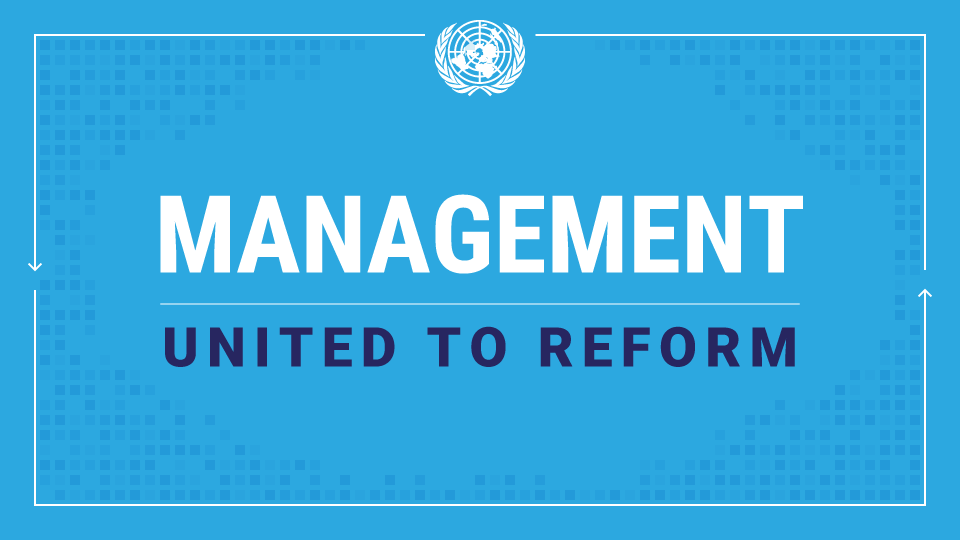Management Reform
Ensuring a better future for all
The new management paradigm was put forward to enable the Secretariat to more effectively and accountably deliver on its mandates, and therefore better positions the United Nations to confront global challenges.

Snapshot of Management Reform
In 2017, the Secretary-General laid out a vision for a more agile and decentralized Secretariat in which responsibility for mandate implementation is aligned with authority to manage resources, where decisions are made at the point of mandate delivery and in which policies and procedures are simple and streamlined. This vision was reflected in the new management paradigm which he aimed to achieve through management reform.
Management reform was built on three foundation elements: decentralization of decision-making authority, simplification and streamlining of policy and processes, and strengthened accountability and transparency.
To support the new approach to management, two new departments - the Department of Management Strategy, Policy and Compliance and the Department of Operational Support - were established on 1 January 2019. They provide policy advice and operational support to the global Secretariat.
Additionally, a Management Client Board was established as a forum through which the various types of entities in the Secretariat can ensure that their respective requirements are reflected in the development of new administrative policies and procedures.
The first annual programme budget was adopted for 2020. The new format and shorter cycle have improved accuracy of resource estimates and planning assumptions, thereby improving accountability for results. An online portal and dashboard offer a comprehensive picture of programme delivery.
The new evaluation policy will improve the quality of performance assessments across the Secretariat. Additionally, a new Secretariat-wide risk register will help managers mitigate risks for programme delivery.
A benefits management system has been developed to ensure that the benefits of reform are properly tracked, realized and reported on. In the past, the UN has struggled to prove the benefits of reform to its stakeholders. The benefits management system seeks to address a gap identified by legislative bodies to establish at the outset a plan for realizing benefits. It consists of a benefit management framework and a benefits tracker published online, reflecting a new level transparency in the Organization.
Response to COVID-19
The Secretariat’s response to the COVID-19 pandemic has proven to be both an important means of validating the concepts underpinning management reform and a useful stress test for the new structures established to support the new decentralized approach.
Despite the pandemic, the United Nations was able to continue its work largely uninterrupted, underpinned by the new processes and structures, revised delegation of authority framework, and other tools put in place through the reform. For example, the clearer division of labour in Human Resources Management enabled the rapid development of new policies and guidance to address the changing realities on the ground.
The adoption of supply chain management as part of reform also helped ensure that field entities were able to rapidly address shortages in personal protective equipment and ventilators and that the tools—including medical and aviation arrangements for medical evacuation—are in place to protect United Nations personnel so that the Organization can stay and deliver for the people who depend on its work.
Investments made in the area of information and communications technology also ensured business continuity in a time of unprecedented challenges.
At the same time, the COVID-19 pandemic has been an important catalyst for change, accelerating the mainstreaming of innovation and adoption of new ways of working. Key workplace culture changes in mindsets, behaviours and processes, including greater digital transformation are helping the Organization nurture an agile workforce that is more nimble, adaptable, and fit for the future in the post-pandemic era.

